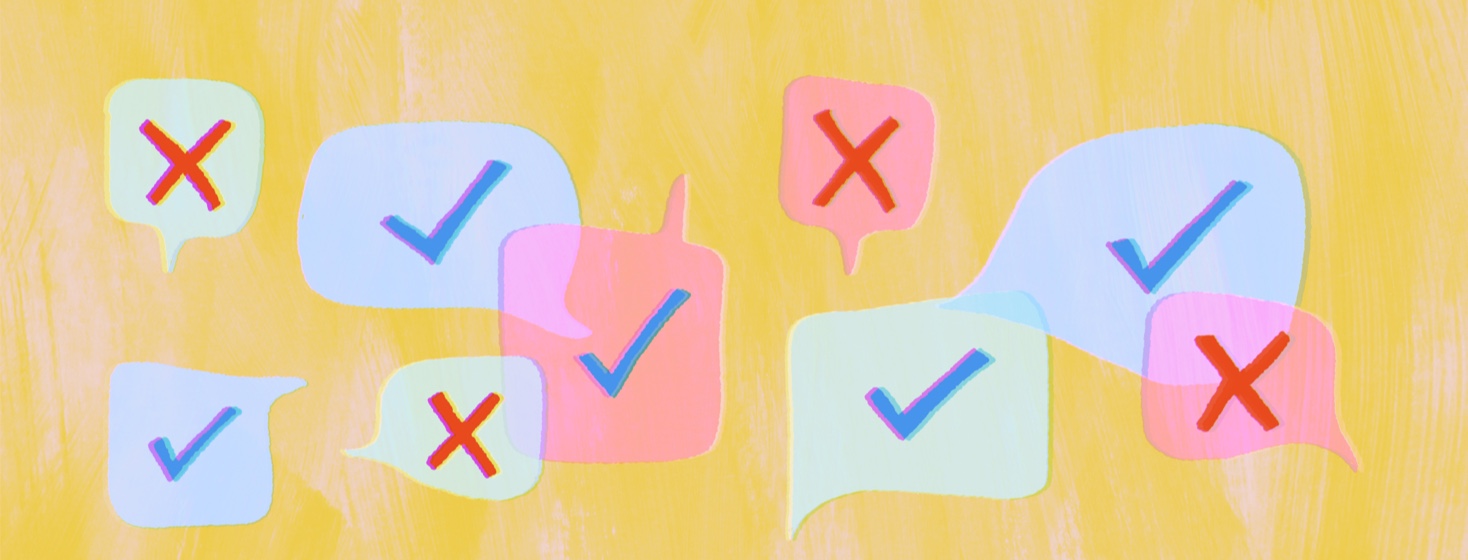7 Myths About Shingles
Shingles is a viral infection that is often misunderstood. Understanding the myths and misconceptions about shingles can help reduce your chances of getting it. Here are 7 common myths about shingles with the facts to set the record straight.
Myth: Shingles is rare.
Fact: Shingles is quite common. About 1 in 3 people in the US will get shingles in their lifetime. And about half of Americans who live to age 85 will have had shingles at some point in their lifetime.1
Myth: Shingles and chickenpox are the same thing.
Fact: Shingles and chickenpox are caused by the same virus, called the varicella-zoster virus. However, they are different illnesses.1-3
Chickenpox causes an itchy rash all over the body. It mainly affects children and goes away after about a week. Shingles is the reactivation of the virus long after chickenpox has gone away. Shingles causes a smaller rash to develop on one side of the face or body. It mostly affects adults and lasts 3 to 5 weeks. In some cases, symptoms last much longer.1-3
Myth: If I’ve had chickenpox, I can’t get shingles.
Fact: If you have had chickenpox, it is possible to get shingles. But not everyone who has had chickenpox will get shingles. After you have chickenpox, the virus stays in your body but is not active. If that virus gets activated again, it causes shingles.1,2
Myth: Only older people get shingles.
Fact: While shingles is more common in people over age 50, anyone who has had chickenpox can get shingles – even kids. You are more at risk of getting shingles if you have a weakened immune system or a serious illness like cancer, or if you are taking certain medicines.1,3
But healthy people can develop shingles, too. Stress and even something as common as a cold or too much sun can lower a person’s immune system enough to put them at risk of getting shingles.2,3
Myth: Shingles is just a rash that isn’t painful.
Fact: Shingles is much more than just a rash. While some people have mild symptoms like minor itching, others experience symptoms that can be quite painful.1-3
Shingles symptoms range from mild to severe. They usually involve one or more of the following:1-3
- Odd sensations like burning, itching, tingling, and numbness on the skin. These are usually the first signs of shingles.
- Red, itchy rash. A rash usually forms a few days after initial symptoms. It usually appears on one side of the body or face.
- Fluid-filled blisters. These blisters are very contagious to people who have never had chickenpox or the chickenpox vaccine.
- Headaches
- Fever and chills
- Stomachache
- Long-term nerve pain (post-herpetic neuralgia, or PHN). PHN causes throbbing and shooting pain that can last for months and sometimes years after the rash has healed. It affects about 1 in 10 people who get shingles.
Myth: There is no treatment for shingles.
Fact: If you have shingles, a doctor can prescribe you an antiviral drug that may help get rid of the virus faster. It can also help reduce the intensity of the symptoms. Non-prescription drugs like ibuprofen can help with the pain.2,3
With shingles, the earlier you can treat it, the better. If you have any of the above symptoms, call your doctor as soon as possible.2,3
Myth: Shingles can’t be prevented.
Fact: A vaccine called Shingrix can reduce your chances of getting shingles. For people who are vaccinated but still get shingles, the vaccine reduces the severity and length of symptoms.2,3
Shingrix is more than 90 percent effective and has been approved by the U.S. Food and Drug Administration (FDA). Studies show that Shingrix is safe. It is easy to get, and it comes in 2 doses spaced a couple of months apart. If you have had chickenpox, the chickenpox vaccine, or shingles, you are eligible to get the vaccine.2,3
The shingles vaccine is available at local pharmacies, health clinics, and most doctor’s offices. Check with your doctor to see if you are eligible.1See a doctor as soon as you notice symptoms.
The earlier shingles treatment begins, the more effective it will be. If you think you have shingles, see your doctor as soon as possible. They will be able to diagnose you and start you on a treatment plan.3

Join the conversation